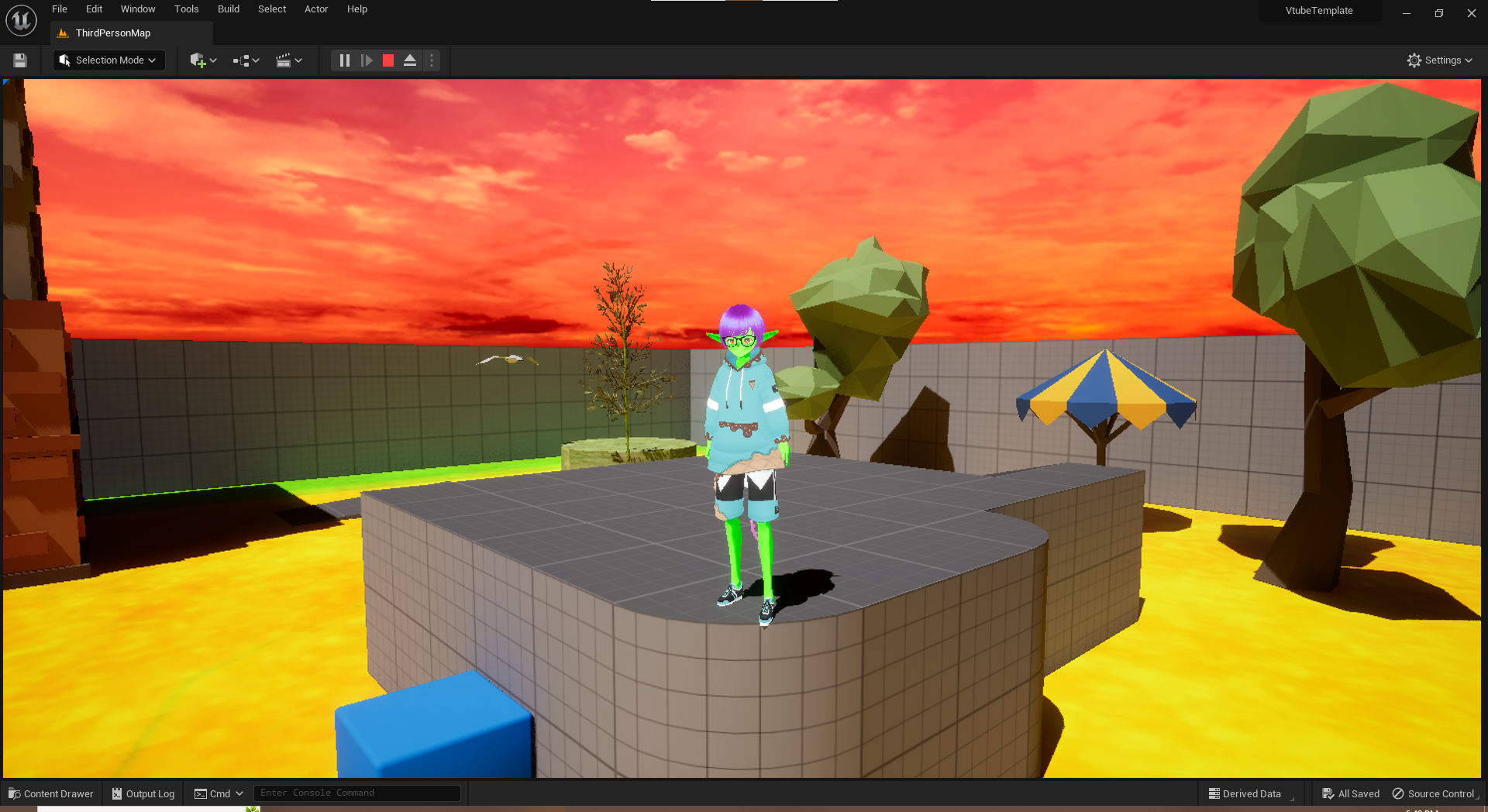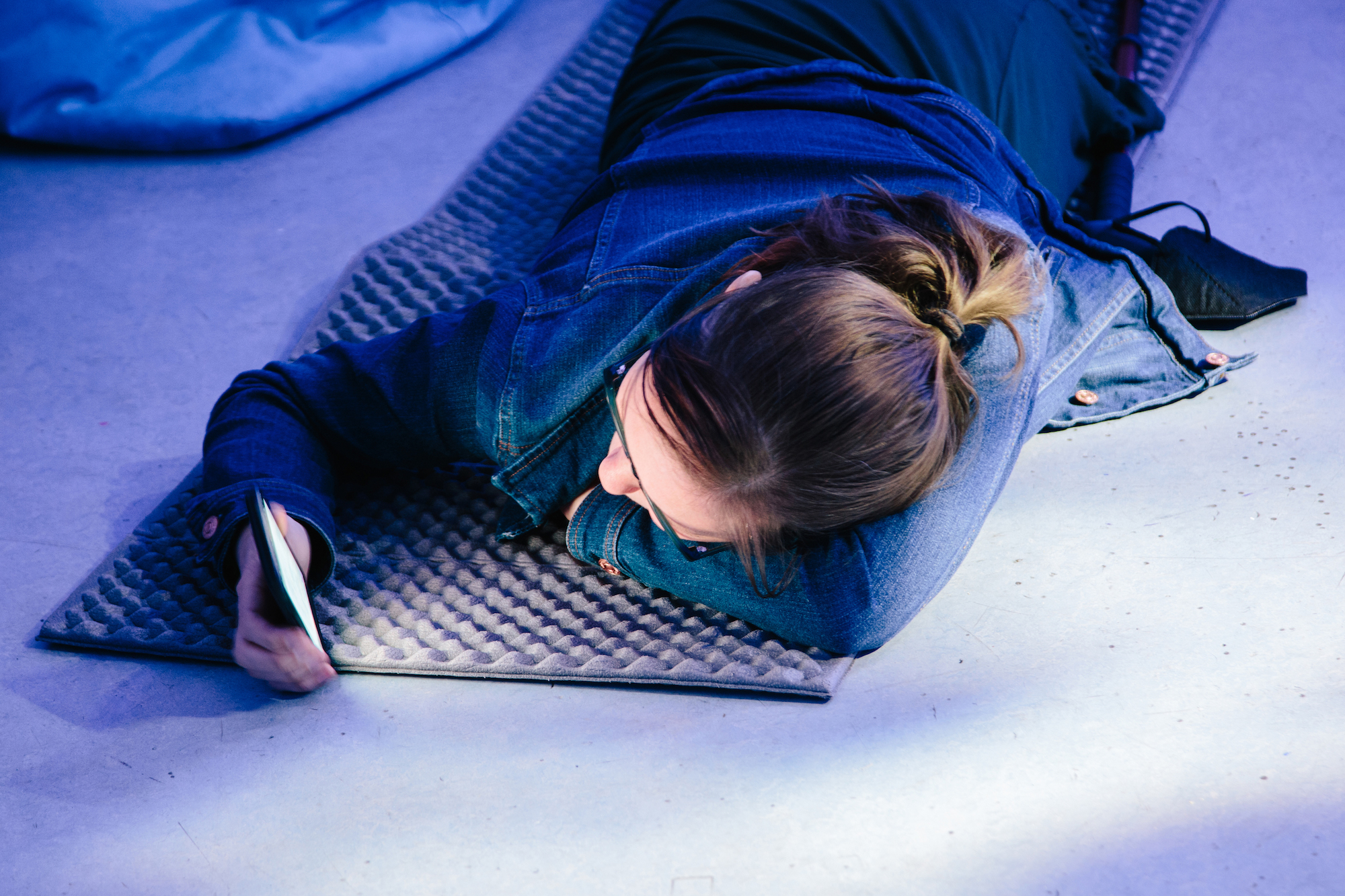Reflections on (Algo|Afro) Futures
Antonio Roberts, co-founder of (Algo/Afro) Futures mentoring programme, reflects on accessibility in terms of the software and creating a supportive space for learning.
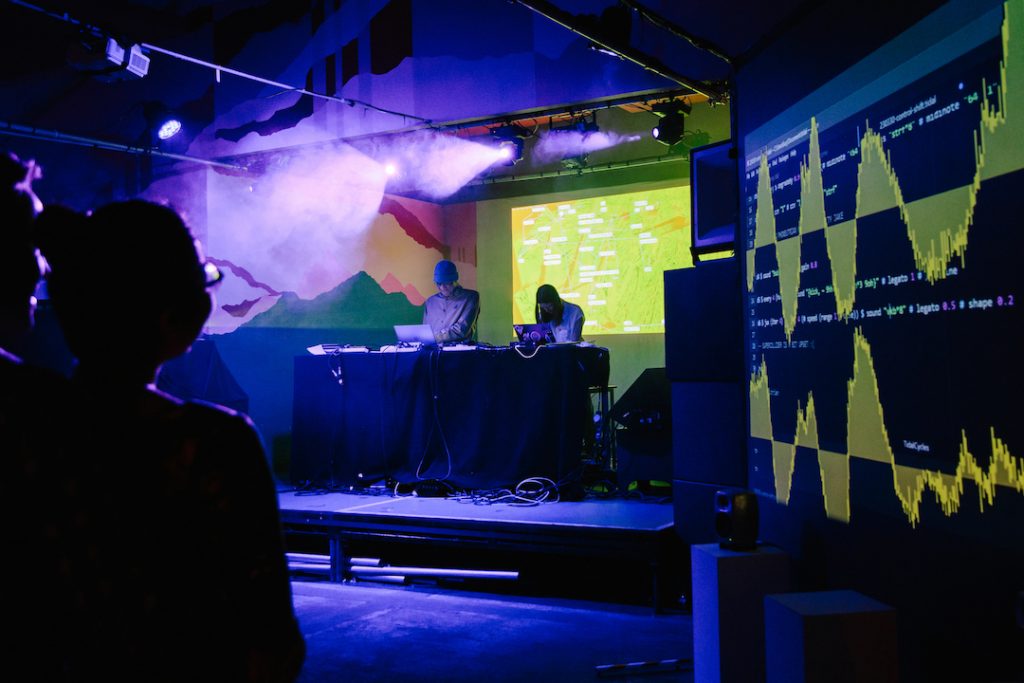
In January 2024, we used Innovate UK funding to commission blogs from artists involved in Control Shift to share how their work relates to different approaches to technology. Below, Antonio Roberts explores how artists can enact practices of ‘radical access’ in relation to tech.
Over to you, Antonio:
Hi! I’m Antonio Roberts (aka hellocatfood) and in this blog post I will offer my reflections on (Algo|Afro) Futures mentoring programme, specifically focusing on accessibility in terms of the software and creating a supportive space for learning.
Since around 2014 I have been involved with the live coding community and have performed at events across the UK, Europe and North America. For those not in the know, live coding is the practice of making art and music live, using computer programming. This is usually done at events called Algoraves (algorithm + rave). The Guardian did a great short explainer on this:
One thing that I find noteworthy about Algoraves and the live coding community is that it actively tries to counter the white-male bias which is prevalent in digital art, electronic music, and the tech industry. In practice this means that you’ll very rarely see an all male or male heavy lineup, and indeed there are many events organised by women, trans and non-binary people. Though this isn’t heavily enforced by any central authority, there are the Algorave community guidelines which try to promote diversity from the start. Quoting the guidelines:
“Diversity in lineups and audiences – Try to have a diverse lineup, thinking about e.g. gender, ethnicity, class, age, belief/non-belief, and education. A diverse lineup creates a diverse audience which leads to a diverse community, and is beneficial to all. Additionally it is also nice to see a range of different technologies and approaches to keep things moving.
It’s best to focus on diversity right from the start. Once people get the impression of e.g. a boys’ club it’s hard to shake that off.. Plus we’re fighting against heavy biases in both club and tech culture… Look to create a new space from day one.“
Despite this, however, I have noticed that at many of the Algoraves I’ve performed at I’m often the only if not one of very few Black people or people of colour in an event. This is still sadly also reflected in my wider professional artistic career as well.
Fast forward many years and, in short, 2020 happened… This year brought about many tragedies, a very significant one being the killing of George Floyd. In part out of anger and frustration at the public response to the killing – basically anger at how long it finally took the public to be outraged – I decided that I finally had something to say and wanted to let my thoughts be heard. One of the manifestations of this was the (Algo|Afro) Futures programme. It is a programme, co-founded by myself and Alex McLean, for early career Black artists to learn about live coding.
The programme is essentially a series of workshops where we introduce the artists to live coding music and visuals. At the conclusion of the programme they are invited to showcase what they have learnt at a showcase event at Vivid Projects in Birmingham. Here’s a video from the showcase event for the 2023 programme:
In the three years of the programme, there have been 19 participants, including Emily Mulenga, Samiir Saunders, Meesha Fones, Canaan Brown, Jim Osman, and MYNA. I’m extremely proud and impressed by what they had achieved in the short time on the programme. To go from having had little or no exposure to programming to doing a performance after only four workshops is incredibly impressive and a testament to their talent.
Of course this programme isn’t the only way that the participants could have learnt live coding. If I reflect on my own experience of learning these tools I relied mainly on the various forums, tutorials, and hours trial and error. However, I recognise that not everyone will have the patience or knowledge to debug cryptic error messages and may, in general, find self-directed learning really difficult.
Most importantly for me is that having a space for Black artists only to learn these tools I think goes a long way to make it accessible and welcoming. One of the responses on the programme’s FAQ goes into why this decision to make the programme only for Black artists was made:
“Live coding is a developing practice that is in need of diverse perspectives in order to move forward in a creative and healthy way. There have long been efforts in this direction but with some exceptions, these have largely focussed on gender diversity, countering the heavy male bias in technology, with some success. These efforts have been intersectional but the recent growth of the Black Lives Matter movement during 2020 has caused us to reflect further on the disproportionate lack of Black artists in the UK live coding scene. This is despite much of live coded music heavily inspired by Black music, much of which developed against a political struggle.“
The last sentence is something which I had only come to realise relatively recently. If I were to reflect on my experience growing up listening to electronic music (think House, EDM, techno) on the TV and radio I can see how it is very Eurocentric and overlooks, misrepresents or, at worst, completely erases the contributions Black people have made to the genre. Only through actively looking beyond the dominant narratives about electronic music’s history have I come to learn about its evolution from Disco and its origins in Detroit, born out of experiments by musicians such as Derrick May.
Of course a retelling of this history is too much for this blog post, and there are far more well-versed writers who have documented this. For further reading on this history I recommend the brilliant book Assembling a Black Counter Culture by DeForrest Brown Jr, the podcast Dance Yourself Free from Throughline/NPR, or the documentary Can You Feel It – How Dance Music Conquered the World.
Knowing all of this I can therefore personally relate to why a Black person entering this space, whether that space be a discussion forum online or a workshop environment, may feel intimidated or unwelcome in a White-male-dominated space. Creating a space where a person doesn’t have to justify or explain their existence in it is really important in creating a welcoming, creative, and accessible environment!
After three successful years, the (Algo|Afro) Futures mentoring programme will be taking a break in 2024. I took this decision to both avoid burnout (self-care is important too!), but also to take a step back and reflect on what has (and hasn’t) worked in the programme, and think about the ambitions for future editions. There is still so much work to do in addressing the lack of Black representation within the live coding and electronic music/art scene, and whilst I don’t ever imagine this one tiny mentoring programme will “solve” it all, I do hope it has provided those involved with an insightful and enjoyable experience and some new skills!
Although this project responds to the lack of Black representation in the live coding and Algorave scene we don’t necessarily intend to ‘solve’ that problem. Instead we want to provide early career artists with the time and resources to explore live coding and algorithmic music/art, and take it in whatever directions they want to (or not!). In the process we can learn about what barriers and opportunities there are for those futures.
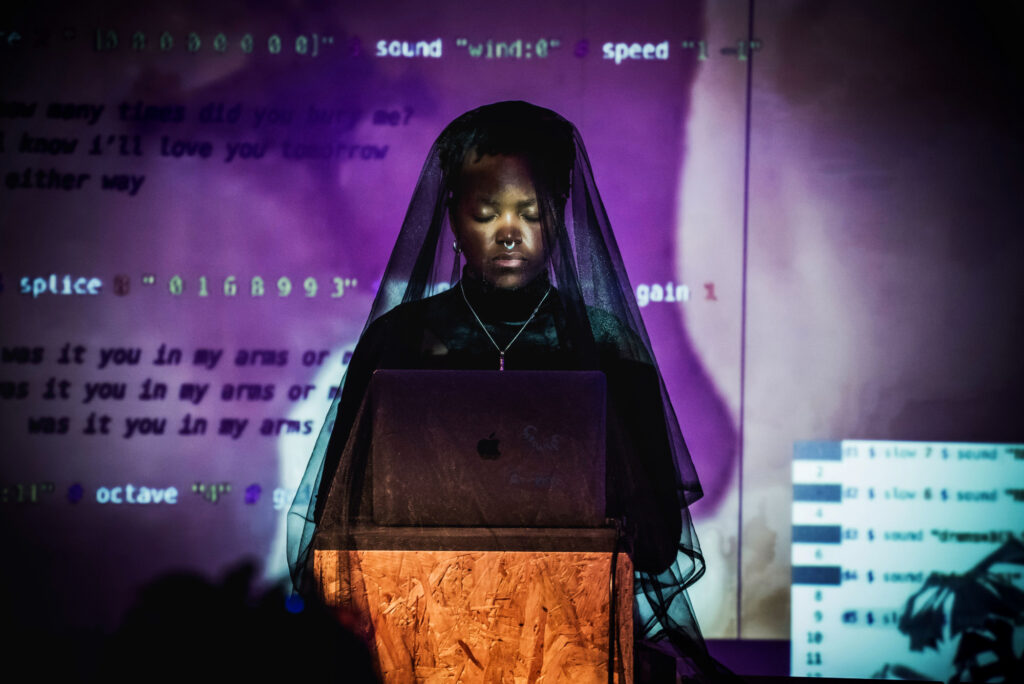
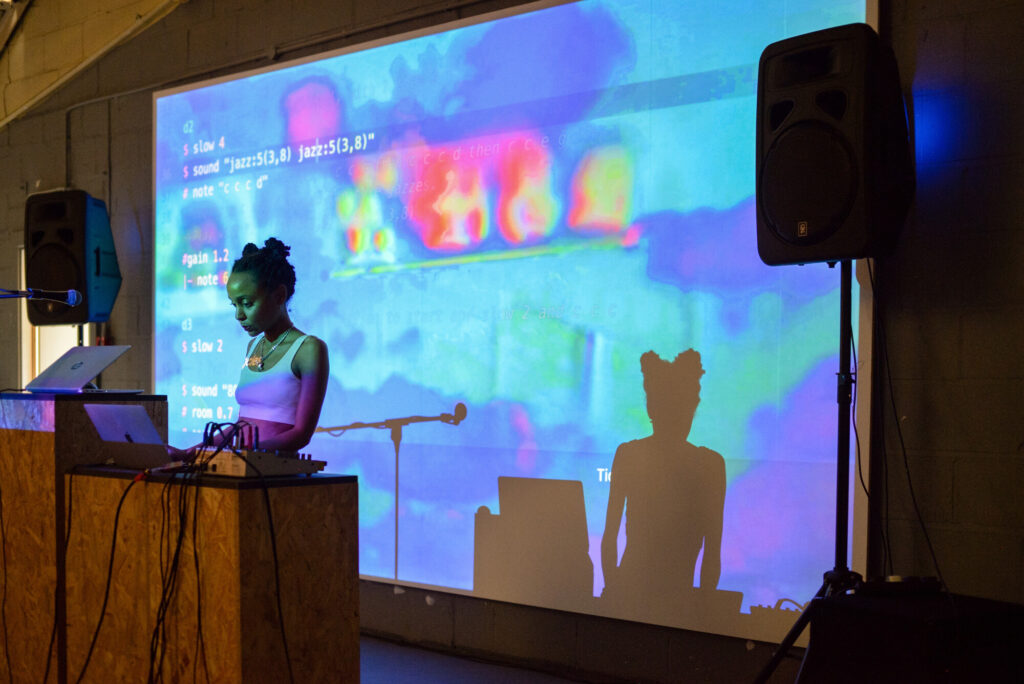
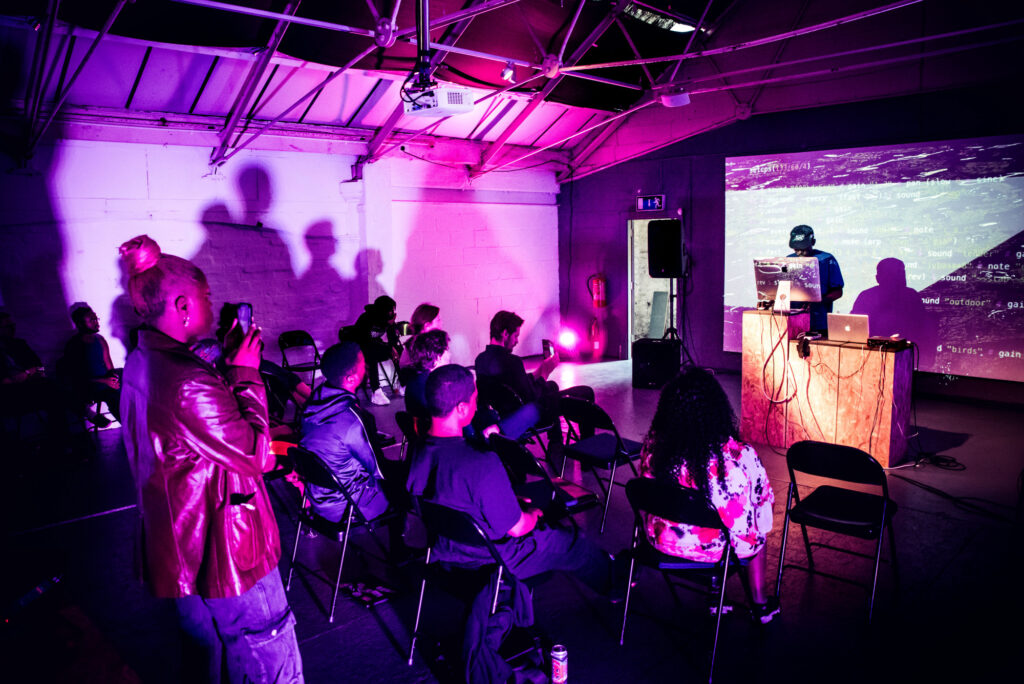

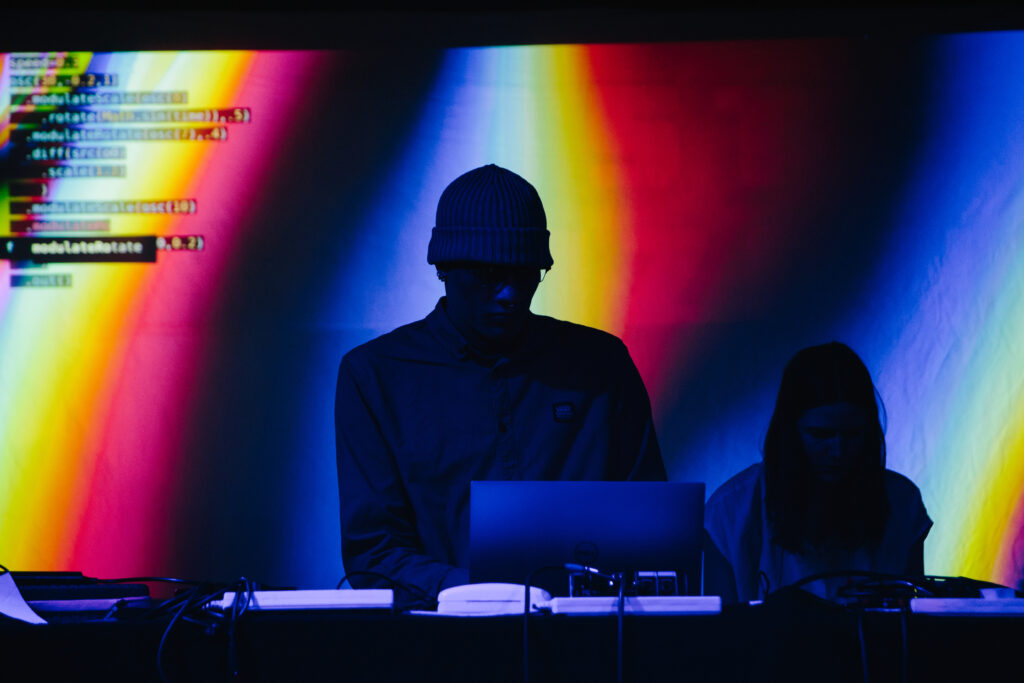
About Antonio
Antonio Roberts is an artist and curator based in Birmingham, UK, working primarily with video, code, and sound. He is critically engaged with the themes surrounding network culture and in his practice explores how technology continues to shape ideas of creation, ownership, and authorship. As a performing visual artist and musician he utilises live coding techniques to demystify technology and reveal its design decisions, limitations, and creative potential.
